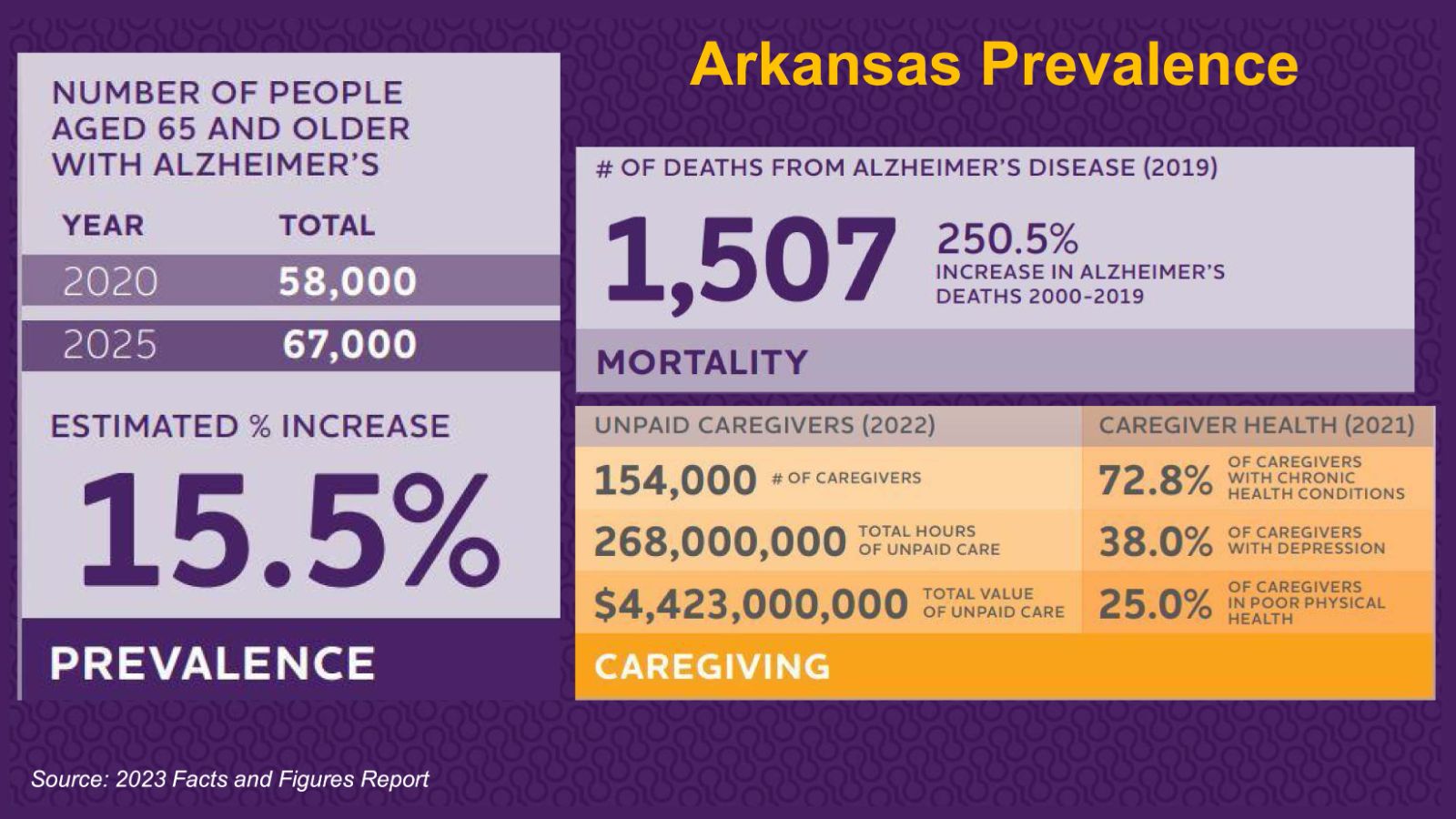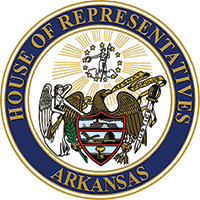
This week, the House Aging, Children and Youth, Legislative and Military Affairs Committee convened with the Senate Children and Youth Committee. Members were presented with the Alzheimer’s and Dementia Advisory Council Annual Report. These findings shed light on the alarming statistics surrounding Alzheimer’s disease in the state, revealing both present challenges and future hurdles facing our state.
In 2021, the 93rd General Assembly initiated Act 391 which established a permanent Alzheimer’s and Dementia Advisory Council. This move demonstrated the state’s commitment to addressing the issue head-on. Alzheimer’s disease is a debilitating condition that not only affects those living with it but also places a significant burden on their families and caregivers.
The statistics are sobering. In 2020, it was estimated that 58,000 Arkansans aged 65 and over are living with Alzheimer’s. This number is expected to rise to approximately 67,000 by 2025. This number highlights the urgent need to confront this disease.
Another heart-wrenching aspect of Alzheimer’s is the toll it takes on caregivers. Arkansas currently has around 154,000 unpaid caregivers who provide support and care for their loved ones with Alzheimer’s. The impact of these dedicated individuals cannot be overstated. They face immense emotional, physical, and financial challenges while caring for their afflicted family members. Most Arkansas caregivers are over the age of 50 and 41% of caregivers have an annual household income of less than $50,000.
Members of the committee were also given some alarming statistics regarding Arkansans experiencing early warning signs. In Arkansas, 11.5% of those aged 45 and over report they experience confusion or memory loss that is happening more often or getting worse.
For those with worsening memory, 60% say it has created functional difficulties that have caused them to give up day-to-day activities or interfere with work or social activities.
While there is currently no cure for Alzheimer’s, research is showing that people can reduce their risks by making key lifestyle changes including maintaining good heart health.
In recognizing the pressing need to address Alzheimer’s, the 94th General Assembly strengthened with Advisory Council with Act 102. This act adds two members from underrepresented healthcare providers. They include a representative from the Arkansas Home-based Services Association and the Arkansas Residential Assisted Living Association.
The 94th General Assembly also passed Act 682 which establishes the position of Dementia Coordinator within the Division of Aging at the Department of Human Services.
We will continue to review the information and recommendations coming from the Advisory Council.
The Alzheimer’s Disease and Dementia Advisory Council meets again on Monday, October 30th at 12:30 p.m. in the State Capitol, room 151. The meeting will be live-streamed at arkansashouse.org.
